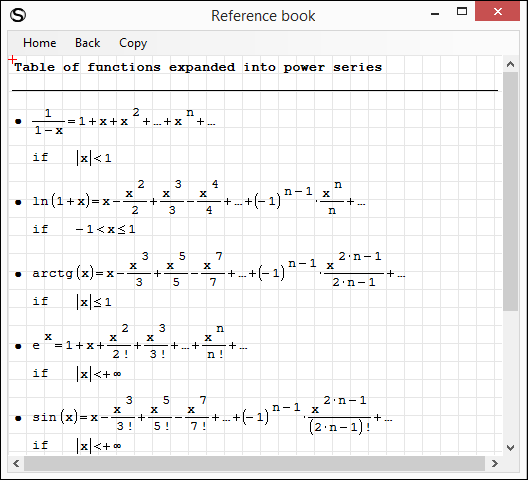Read more on the Perseus version history.
New to Perseus? Click here for a short tutorial.
Perseus News and Updates
- Please visit the Perseus Updates blog for news on project activities, research, and initiatives. We invite you to contact us via email to the Perseus webmaster if you have any comments, questions, or concerns.
- April 24, 2019: Current Projects and Initiatives
- Work continues on the Scaife Viewer, our first new reading environment in nearly 15 years. For more, please read About the Scaife Viewer and send us your comments.
- The Perseus Digital Library is a partner and supporter of Open Greek and Latin, an international collaboration committed to creating an open educational resource featuring a corpus of digital texts, deep-reading tools, and open-source software. Look for new OGL materials in the Scaife Viewer.
- News, help and support-related content for this site ('Perseus 4.0') will be updated periodically, but the site collections and infrastructure are no longer under active development as we begin the transition to the next phase of Perseus.
Release Announcements
- October 2013
New texts: the English Bohn and Greek Kaibel editions of Athenaeus' Deipnosophists and Harpocration.
Corrections to Greek and Latin lexicons, Oppian, Smith's Geography, Pausanias, Cassius Dio.
CIDOC RDF download links added for Art and Architecture data.
- June 17, 2013
The navigation bar and text sidebars now include links to the Perseus Catalog.
- April 30, 2013
We have released fixes to typos and other errors in various texts.
- February 27,2013
We have released bug fixes to the following items: the display of Greek letters used to identify subsections in the Lewis and Short Latin Dictionary, broken links to dictionaries in the Word Study tool, and the use of collection limits in searches producing hits in document metadata.
- April 25, 2012
We have addressed some performance issues with the site and fixed a crash in the vocabulary tool. Although some performance problems may persist, we hope that the overall experience is improved. As always, feedback is welcome. Feel free to send detailed error reports to the webmaster.
Perseus contact and support information.
Perseus is a non-profit enterprise, located in the Department of the Classics, Tufts University.
The Perseus Project has been supported by various funders throughout its history:
Mnemosyne is a ten-year, pan-European and civic project. It offers a new way to consider exhibitions, memory policy and culture at a time of the greatest threats since the Second World War. Mnemosyne derives its name from the Greek goddess of memory, mother of the nine muses.
Perseus has been most recently funded by the Alpheios Project, the Andrew W. Mellon Foundation, the Institute of Museum and Library Services, the National Endowment for the Humanities, the National Science Foundation, private donations, and Tufts University.
Prior support for the project has been provided by the Annenberg/CPB Project, Apple Computer, the Berger Family Technology Transfer Endowment, Digital Libraries Initiative Phase 2, the Fund for the Improvement of Postsecondary Education part of the U.S. Department of Education, the Getty Grant program, the Modern Language Association, the National Endowment for the Arts, the Packard Humanities Institute, Xerox Corporation, Boston University, and Harvard University.

- Feb 05, 2021 Mnemosyne resembles a traditional flash-card program but with an important twist: it uses a sophisticated algorithm to schedule the best time for a card to come up for review.
- See full list on github.com.
- Project Mnemosyne - a review by Rosemary Kenny When a malign plot to seize power causes an apocalypse of terror, that kills millions, orphans Julianna and Declan are among other outstandingly clever YAs herded to work on top secret projects in the Scholar's Compound, instigated by Guardian Costma's New Regime.
- The Mnemosyne Project has two aspects: It's a free flash-card tool which optimizes your learning process.It's a research project into the nature of long-term memory. We strive to provide a clear, uncluttered piece of software, easy to use and to understand for newbies, but still infinitely customisable through plugins and scripts for power users.

Popular Texts
- Caesar, Gallic War (English, Latin)
- Catullus, Carmina (English, Latin)
- Cicero, In Catilinam I (English, Latin)
- Vergil, Aeneid (English, Latin)
- Herodotus, Histories (English, Greek)
- Homer, Odyssey (English, Greek)
- Plato, Republic (English, Greek)
- Tom Martin, Overview of Classical Greek History from Mycenae to Alexander (English)
Art and Archaeology
Silver obol from Athens |
The Bartlett Head |
Featured Sites
- Stoa: Open Access Publication
Home > SourceForge.net
File extension list filtered by software name
Mnemosyne Project

Found one file extension association related to Mnemosyne Project and 1 file format developed specifically for use with Mnemosyne Project.
Platform, operating system:Multiplatform
Go to: Mnemosyne Project description
Developer:SourceForge.net
SourceForge software list & details
Bookmark & share this page with others:
Mnemosyne Project
Developer / company:SourceForge
The Mnemosyne software resembles a traditional flash-card program to help you memorise question/answer pairs, but with an important twist: it uses a sophisticated algorithm to schedule the best time for a card to come up for review. Difficult cards that you tend to forget quickly will be scheduled more often, while Mnemosyne won't waste your time on things you remember well.

The software runs on Linux, Windows and Mac OS X. There is also a plugin called Mnemogogo which allows you to review cards on Android phones (using Mnemododo) and phones with Java (using Mnemojojo). This also works on Blackberry devices.
Mnemosyne Project works with the following file extensions:
Note: You can click on any file extension link from the list below, to view its detailed information. The list of extensions used or otherwise associated with the application may not be complete, because many common file extensions on our website, such as jpg (pictures) or txt (text files), can be opened by a large number of applications, or are too general file format. However most, if not all directly associated file extensions should be listed with its appropriate program. Although its likely, that some file extensions may be missing from the list of associated file extensions with the application, yet they can be opened, be part of, or otherwise be associated with the program.
Mnemosyne Project default file extension associations
Mnemosyne Word Cards

.mem
Comparison table of actions that Mnemosyne Project can perform with its associated file type beta
Nemosine
This table might not contain all possible associated or supported file types or may contain incorrect data.
If you need more information please contact the developers of Mnemosyne Project (SourceForge.net), or check out their product website.
The Mnemosyne Project Movie
File type Action | Open | Save | Edit | View | Play | Convert | Create | Record | Import | Export | Burn | Extract | Recover | Backup | Settings | Other | |
|---|---|---|---|---|---|---|---|---|---|---|---|---|---|---|---|---|---|
| Yes | - | - | - | - | - | Yes | - | - | - | - | - | - | - | - | - | Yes |
